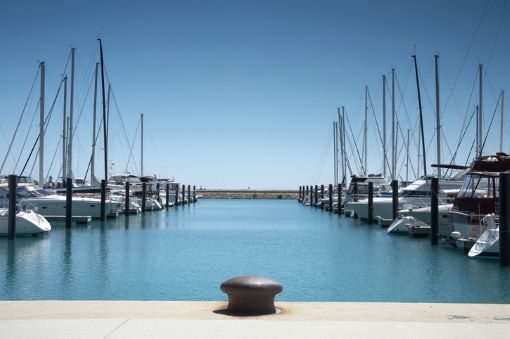When i told the electronics technician that I had been spraying everything on my bridge with glass cleaner and wiping it down with paper towels, I thought his head was going to explode. I had no clue my cleaning habits were taboo. What’s the proper way to clean and maintain your electrical gear? We talked to experts from two different manufacturers to find out.
Soft Wipe
There are two issues you need to consider when cleaning your electronics. One is chemical reaction and the resulting damage to knobs, buttons, housings, and lenses. The other is abrasion damage or scratching on lenses. According to Rob Bright of Navico, the parent company of Simrad and Lowrance, never use paper towels. Opt instead for any soft or microfiber cleaning cloth. Larry Till of Furuno specifically suggests using 3M’s microfiber cloths. Also, make sure you rinse your screens lightly with freshwater before wiping; otherwise, dried salt deposits can scratch the fragile LCD screens.
Caustic Cleansing
Solvents and chemicals are the worst things you can put on your screens. Furuno applies an anti-reflective coating to its products, and a surprising number of cleaners destroy it. Till says that some marine products are waterproof, but that doesn’t mean they’re built to withstand high-pressure hosing. Also CRT screens aren’t nearly as waterproof as LCDs and extra care must be taken when cleaning these devices. Go with a mild misting with freshwater and, if serious washing is needed, put plastic covers in place beforehand. If freshwater doesn’t do the trick, start with mild detergents such as boat soaps or hand soaps. Progress carefully to more aggressive products if necessary. "Our service department receives some seriously weathered screens for repair. After regular cleaning with freshwater, we often resort to a product from Chemtronics called Screen Prep," says Till. It’s a two-part system that consists of a single-use wet wipe (deionized water and isopropanol), and a single-use dry wipe. Similar LCD cleaning kits can be purchased at most computer or home electronics stores. Navico has gone largely to glass screens, which better resist abrasion, but even they have coatings that can rub off. "No matter what kind of screen you have, you want to treat it much like a camera lens," says Bright. What about keeping screens clean at sea? Savvy captains keep a small spray bottle with freshwater nearby for rinsing.
Bezel Behavior
Bezels often fade and lose color with time. To prevent sun damage and fading both of our experts stressed that covers should be placed on electronics when they’re not in use. Can anything restore the color to faded units? Both Till and Bright say no, but I’m not so sure. During my time as first mate on some older charter boats, I’d carefully wax the bezels. Several coats added oils to the parched material and brought back some color. But electronics manufacturers don’t accept this solution. What about the back side of the units? Both technicians agree that these electronics don’t require any dusting or cleaning of fans or air intakes. Unlike your home computer they are designed to keep dust and harmful particles out. What about protecting the connections? Bright suggests that a small application of silicone grease or Vaseline will help prevent them from seizing or corroding, and Till recommends using the provided rubber boots to cover any unconnected plugs. Regarding cleaning and maintaining your electronics, less is more, and when it comes to maintenance, that’s always good to hear.
Shared with permission by Boating Magazine.

